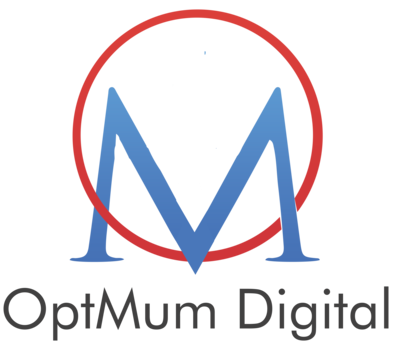When you first start conducting PPC advertising, you should regularly analyse their effectiveness and change your bids accordingly. If you discover that particular keywords are generating a lot of traffic and conversions, you may want to raise your prices to keep your advertisements competitive. If particular keywords are underperforming, you may wish to cut your bids or delete them entirely from your campaign.
Table of Contents
ToggleKNOW MORE ABOUT SETTING BUDGETS AND BIDS FOR PPC ADVERTISING
Shubham Sethi

Pay-per-click (PPC) advertising is a very effective technique for businesses to reach their target demographic, drive traffic to their website, and improve sales. To be successful with PPC advertising, however, you must create budgets and bids that fit with your company goals and optimise your spend. OptMum Digital, as a leading digital marketing company in Gurgaon, we understand the importance of effective PPC campaigns and the role they play in growing your online presence.
KNOW YOUR BUSINESS GOALS
The cost-per-click (CPC) is an important measure in pay-per-click (PPC) advertising since it shows the amount you’re prepared to spend each time someone clicks on your ad. As a result, it is crucial in assessing the performance of your PPC campaign. To establish your maximum CPC, examine various aspects, including your business goals, industry competitiveness, and the keywords you’re targeting.
You must first determine your company’s objectives and what you expect to accomplish with PPC marketing. Do you want to improve the number of visitors to your website, create leads, or enhance sales? Once you have a firm grasp on your objectives, you may determine your maximum CPC. For example, if driving visitors to your website is your major aim, you may select a lower maximum CPC because your primary goal is to maximise the amount of clicks rather than obtaining a high conversion rate.
Second, you must analyse your industry’s competitiveness. If you’re in a highly competitive business, you might need to select a higher maximum CPC to keep your ad visible and competitive. With a higher maximum CPC, your ad will display in higher ad positions, improving visibility and perhaps attracting more people to your website. However, you must verify that your CPC is in line with your company objectives and that you are not overspending on PPC advertisements.
SET DAILY BUDGETS
Setting daily budgets is a crucial element of efficiently managing your PPC ads. You don’t want to overspend and quickly reduce your budget, but you also don’t want to set your budget too low and miss out on possible visitors and conversions. Consider your entire advertising budget, the number of campaigns you’re running, and the typical cost-per-click for your selected keywords when determining your daily budget.
CHANGE YOUR BIDS ACCORDING TO PERFORMANCE
APPLY BID STRATEGIES
Bid strategies are an important part of optimising your campaigns and maximising your return on investment (ROI) when it comes to pay-per-click (PPC) advertising. There are several bid strategies available, and selecting the right one may have a big impact on the effectiveness of your PPC ads. Manual CPC bidding, automatic bidding, and improved CPC bidding are the most prevalent bid techniques.
Manual CPC bidding is the most fundamental sort of bid strategy, requiring you to establish your own prices for each term in your campaign. Manual CPC bidding gives you entire control over how much you’re ready to pay for each click, which might be advantageous if you want to maximise your campaign’s spend management. However, monitoring and adjusting your bids for each term may be time-consuming, especially if you’re managing a large campaign.
Automated bidding, on the other hand, is a bid technique in which the platform sets your bids for you automatically. With automatic bidding, you provide your campaign goals, such as maximising clicks, conversions, or ROI, and the software sets bids for each keyword based on those specifications. Automated bidding can save time by eliminating the need to manually monitor and change offers, but it can also result in greater expenses if not set up appropriately.
Enhanced CPC bidding is a hybrid of human and automated bidding in which the platform controls your bids depending on the chance of conversion. You choose your maximum CPC using improved CPC bidding, and the software automatically adjusts your bids for each term depending on the chance of conversion. Because it combines the management of manual bidding with the automation of automated bidding, enhanced CPC bidding can be an effective technique.
When selecting a bid strategy for your PPC campaigns, keep your campaign goals, budget, and amount of control in mind. Manual CPC bidding may be the best solution if you want complete control over your campaign’s budget. If you are short on time and want to automate your bidding procedure, automated bidding may be your best option.
TEST AND EXPERIMENT
Finally, it is critical to test and experiment with your PPC advertising in order to find what works best for your company. Experiment with alternative bidding tactics, change your bids and budgets, and experiment with different ad language and landing sites. You may tweak your strategy and optimise your PPC campaigns for optimal effectiveness by examining the outcomes of your tests.
Read more about Digital marketing vs traditional marketing
Conclusion
OptMum Digital, Best PPC company in Gurgaon, we leverage our expertise and industry insights to continuously refine PPC strategies and ensure our clients achieve their marketing goals. Setting budgets and bids for PPC advertising is crucial for maximising your ROI. By understanding your target audience, conducting thorough keyword research, and implementing effectively.





